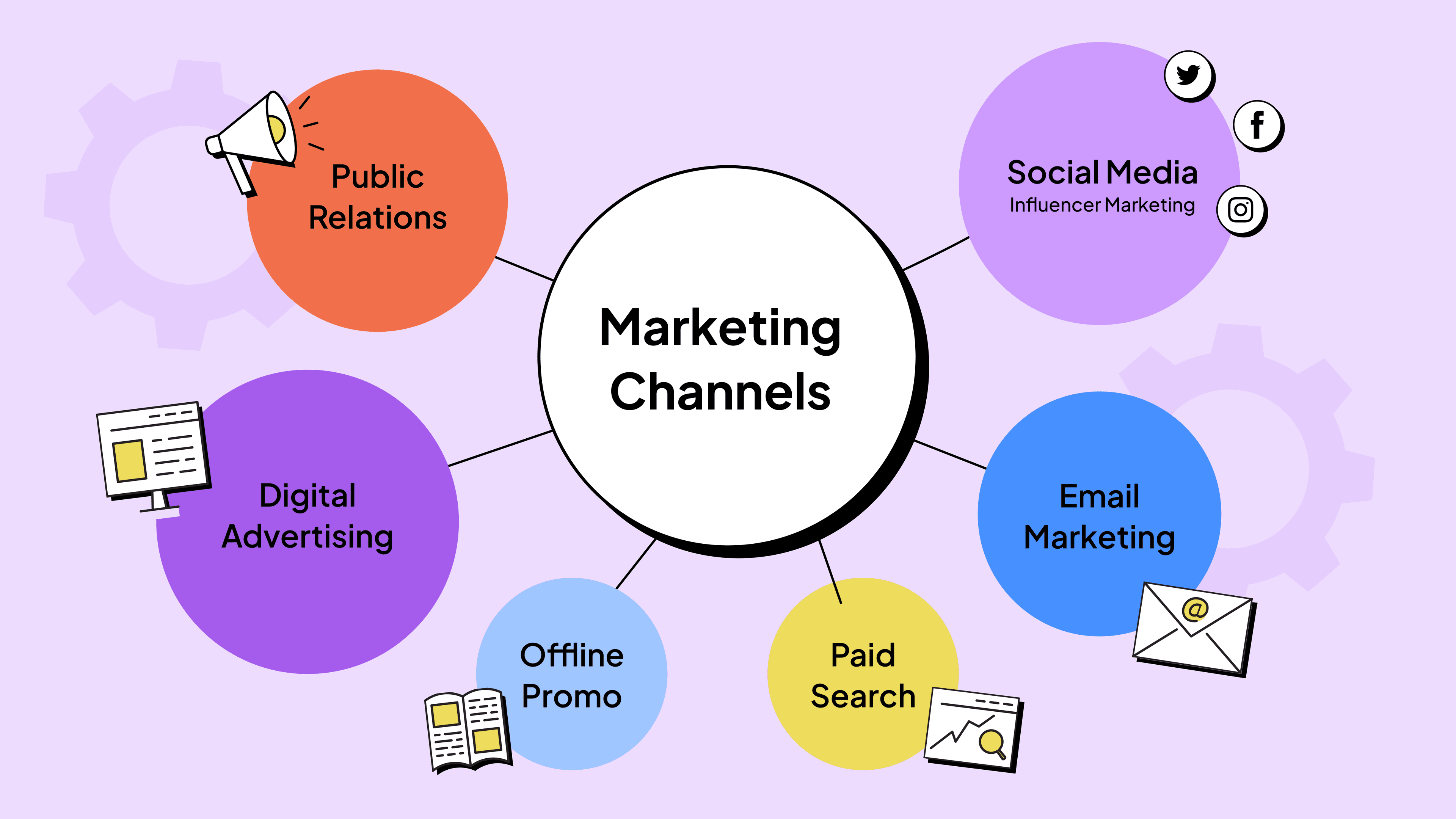Client-Centric Approach: Building Trust with Potential B2B Clients

We all know that building trust is crucial in the B2B world. It's not just about making a sale; it's about creating lasting relationships that benefit everyone involved. That's where a client-centric approach comes in. By putting our clients' needs first, we're not just doing business—we're laying the groundwork for partnerships that stand the test of time. Trust isn't just a nice-to-have, it's the foundation of successful B2B interactions.
In this article, we'll explore how to build that trust with potential B2B clients. We'll dive into the importance of showing we're reliable and competent, and how to be transparent in our communications. We'll also look at strategies to develop long-term partnerships that go beyond just one-off transactions. By the end, you'll have a clear picture of how to create and nurture relationships that lead to mutual success in the B2B landscape.
Understanding the B2B Trust Paradigm
The importance of trust in B2B relationships
In the world of B2B, trust isn't just a nice-to-have—it's the foundation of successful partnerships. We've found that trust is the remedy to risk, bridging the gap between cautious buyers and potential vendors . It's not that B2B buyers are cowardly; they're just being smart and thorough. They get that they're making decisions that affect others, and that's a big deal.
Here's something interesting: B2B buyers who trust a company are almost twice as likely to recommend it or pay a premium to work with it . That's huge! It shows how trust can really pay off. But here's the kicker—not many companies have solid trust-building programs in place . We think that's a missed opportunity.
Key factors influencing B2B buyer trust
So, what makes B2B buyers trust a company? Our research shows that there are seven key factors, or "levers," that create and sustain trust. But three of these stand out as the most crucial for B2B buyers across different industries:
- Competence: Buyers want to know we're experts at what we do.
- Consistency: They expect us to perform reliably every time.
- Dependability: We need to be there when they need us and meet their demands .
These three factors are super important because they help manage risk, which is a big concern for B2B buyers.
But it's not just about these factors. B2B buyers also care about things like financial security, how long a company has been around, and its ability to innovate . They're looking for partners who can bring value and help them achieve their goals .
Demonstrating Competence and Reliability
We know that in the B2B world, trust is built on a foundation of competence and reliability. It's not just about making promises; it's about consistently delivering on them. Let's dive into how we can showcase our expertise and maintain a track record of quality results.
Showcasing industry expertise
To build trust, we need to demonstrate that we're not just another vendor, but a knowledgeable partner. Research shows that [three-quarters of B2B buyers consider customer experience as a major factor in supplier choice]. This means we need to go beyond just selling our product – we need to show we understand our clients' businesses inside and out.
One way to do this is by sharing valuable insights about our clients' industries. We can create content that addresses their pain points and offers solutions. This could be through blog posts, whitepapers, or even personalized presentations. By doing this, we're not just selling a product; we're positioning ourselves as thought leaders in the field.
Delivering consistent quality and results
Consistency is key in building trust. B2B buyers expect us to perform reliably every time. This means we need to have robust processes in place to ensure we deliver high-quality results consistently.
Here are some ways we can ensure consistency:
- Set clear expectations: We need to be upfront about what our clients can expect from us. This includes response times, delivery schedules, and quality standards.
- Implement quality control measures: Regular checks and balances can help maintain the quality of our products or services.
- Provide excellent customer support: [Research shows that 66% of people believe that valuing their time is the most important aspect of any online customer experience]. We need to ensure our support team is responsive and helpful.
- Continuously improve: We should actively seek feedback from our clients and use it to refine our processes and offerings.
By focusing on these areas, we can demonstrate our competence and reliability, building trust with our B2B clients over time.
Transparency and Communication Strategies
Open dialog about capabilities and limitations
We believe in the power of open communication. It's not just a buzzword for us; it's a core value that we live by every day. We regularly evaluate ourselves and each other on how well we communicate as part of our personal development . This approach helps us create a culture of transparency, which is crucial for building trust with our B2B clients.
To foster this openness, we encourage our team to share their thoughts, ideas, and concerns without fear of judgment. We know that when our employees feel heard and trusted, they're more likely to engage in honest conversations . This openness extends to our clients too. We make it a point to explain our company's policies and rules right from the start, so everyone's on the same page .
Proactive updates and clear expectations
We've found that setting clear expectations from the get-go is key to a positive client experience. We're upfront about what clients can expect during our partnership, including timelines, milestones, and the support we'll provide . This transparency helps build trust and lays the groundwork for a collaborative relationship.
We also believe in proactive communication. Instead of waiting for clients to reach out, we keep them informed about progress, potential challenges, and upcoming milestones . We use various communication channels to accommodate different preferences, ensuring our messages are received and understood .
Lastly, we value feedback. We actively listen to our clients, taking notes during meetings and following up with email summaries. This practice helps us keep track of goals, expectations, and challenges, ensuring everyone's aligned . By valuing and acting on feedback, we show our clients that their input is crucial to our partnership.
Building Long-Term Partnerships
Aligning values and goals
We believe that the key to successful long-term partnerships lies in aligning our vision, mission, and core values with those of our clients. It's not just about making a sale; it's about creating a relationship that fosters trust, collaboration, and mutual growth . When we share the same long-term aspirations and short-term purposes, we're more likely to create lasting value for each other.
To make this happen, we take the time to understand our potential partners' company vision and mission. This helps us gage if we're on the same page and if our collective goals are congruent . We've found that when we surround ourselves with people who believe what we believe, we're naturally motivated to achieve similar goals in a similar manner .
Continuous improvement and adaptation
In the ever-changing B2B landscape, we know that standing still isn't an option. That's why we're committed to continuous improvement and adaptation. We actively seek feedback from our clients, using it to identify areas for enhancement and address concerns . This approach not only helps us grow but also shows our clients that we value their input and are dedicated to their success.
We also stay updated on industry trends, which allows us to anticipate changes and offer insights that help our clients stay ahead of the competition . By fostering a culture of innovation within our business, we're able to develop new products, services, and processes that meet the evolving needs of our clients .
Remember, building strong B2B relationships takes time and effort, but the rewards are worth it. By aligning our values and goals and committing to continuous improvement, we create partnerships that not only last but thrive.
Conclusion
To wrap up, building trust with potential B2B clients is all about putting their needs first and showing we're experts who can deliver consistently. By being open about what we can do, keeping clients in the loop, and always looking to improve, we create partnerships that go beyond just doing business. This client-centric approach doesn't just help us make sales – it lays the groundwork for long-lasting relationships that benefit everyone involved.
In the end, trust is the key to success in the B2B world. When we align our goals with our clients', stay on top of industry trends, and keep pushing ourselves to do better, we're not just selling products or services. We're becoming valuable partners that our clients can rely on for the long haul. By focusing on building trust, we're setting ourselves up for partnerships that can weather any storm and lead to shared success.



